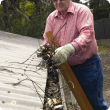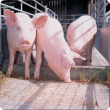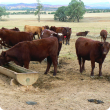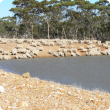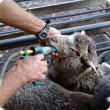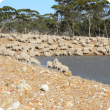Services
Search in Services
Filter services by topic
- (-) Remove Feeding & nutrition filter Feeding & nutrition
- Livestock management (15) Apply Livestock management filter
- Livestock & animals (15) Apply Livestock & animals filter
- Pests, weeds & diseases (8) Apply Pests, weeds & diseases filter
- Livestock health & diseases (8) Apply Livestock health & diseases filter
- Livestock species (8) Apply Livestock species filter
- Diseases (8) Apply Diseases filter
- Livestock disease surveillance (8) Apply Livestock disease surveillance filter
- Livestock biosecurity (6) Apply Livestock biosecurity filter
- Biosecurity & quarantine (6) Apply Biosecurity & quarantine filter
- Biosecurity (6) Apply Biosecurity filter
- Climate, land & water (5) Apply Climate, land & water filter
- Sheep (4) Apply Sheep filter
- Pigs (3) Apply Pigs filter
- Small landholders in Western Australia (3) Apply Small landholders in Western Australia filter
- Land use (3) Apply Land use filter
- Beef cattle (3) Apply Beef cattle filter
- Measuring and assessing soils (1) Apply Measuring and assessing soils filter
- Management & reproduction (1) Apply Management & reproduction filter
- Production & postharvest (1) Apply Production & postharvest filter
- Soils (1) Apply Soils filter
- Water management (1) Apply Water management filter
- Water (1) Apply Water filter
- Livestock research & development (1) Apply Livestock research & development filter
- Soil management (1) Apply Soil management filter
- Grains Research & Development (1) Apply Grains Research & Development filter
- Climate change (1) Apply Climate change filter
- Climate & weather (1) Apply Climate & weather filter
- Crops (1) Apply Crops filter
- Dairy cattle (1) Apply Dairy cattle filter
- Grains (1) Apply Grains filter
- Genetics & selection (1) Apply Genetics & selection filter
- Liming (1) Apply Liming filter

